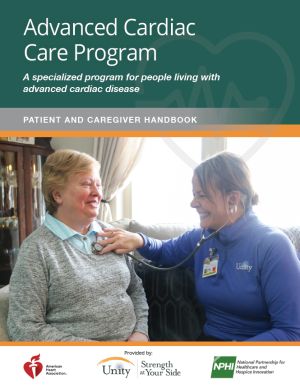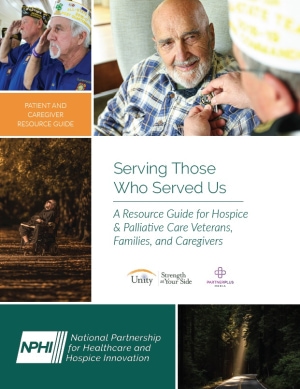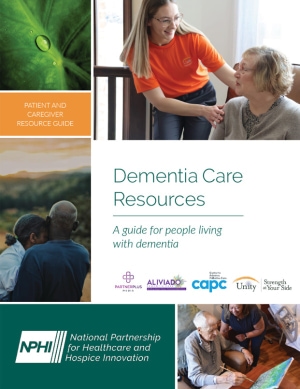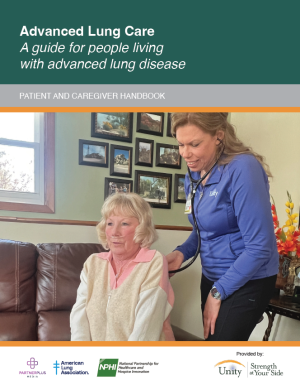Caregiver Education
"There are only four kinds of people in the world—those who have been caregivers, those who are currently caregivers, those who will be caregivers and those who will need caregivers.” — Former First Lady Rosalynn Carter
Whether you’re a family member, partner, friend or neighbor, caring for someone with a serious illness is one of the most important roles you’ll perform. Unity has carefully crafted this selection of tools to guide and support you throughout your journey. Keep in mind to call us at (920) 338-1111 anytime of day or night.
Patient & Caregiver Resource Guides
Advanced Cardiac Care Program Guide
Guide for Veterans, Families, & Caregivers
Dementia Care Resource Guide
Advanced Lung Care Resource Guide
This content was provided with the permission of the Canadian Virtual Hospice – www.virtualhospice.ca.
Patient & Caregiver Resources
County Resources
- Brown
- Calumet
- Door
- Florence
- Forest
- Kewaunee
- Manitowoc
- Marinette
- Menominee
- Oconto
- Outagamie
- Shawano
- Waupaca
National Resources
Rate Your Experience
DAISY Award
Share Your Story
Give the Gift of Advance Care Planning
Advance Care Planning means planning your wishes for care should you become sick or injured and are unable to make decisions or speak for yourself. It’s not just for older adults. In fact, everyone over the age of 18 should have an advance care plan on file with their primary care provider and local hospital. Since Wisconsin is not a next-of-kin state, parents lose the authority to make health-care decisions for/with their children once their son or daughter turns 18.
Making your wishes known is a true gift you can give your family, spouse, partner or main caregiver. Thoughtfully considering and documenting your wishes minimizes confusion and guilt, resulting in peace of mind for your loved ones during a time when stress and emotions will be high. The best time to complete the process is while you are well and not in a health crisis. This gives you time to clearly identify what matters most to you, and the treatment decisions you might make. Advance care plans are empowering. Have the conversation now, you will not regret it. Ready to get started? Here are some helpful resources:
-
The Conversation Project
- How to talk about what matters to you and have a say in your health care.
-
Authorization for
Final Deposition Form
- Delegates someone to make funeral arrangements after the death has occurred.
-
Do Not Resuscitate Form
- Only the Do Not Resuscitate (DNR) bracelet identifies to the Emergency Medical Service Responders that you are DNR. This form cannot be used to communicate your wishes to Responders.
-
Power of Attorney for Health Care
Form
- The Power of Attorney for Health Care form makes it possible for adults in Wisconsin to authorize other individuals (called health care agents) to make health care decisions on their behalf should they become incapacitated. The power of attorney becomes ineffective after death.
- Preparing for a Death










